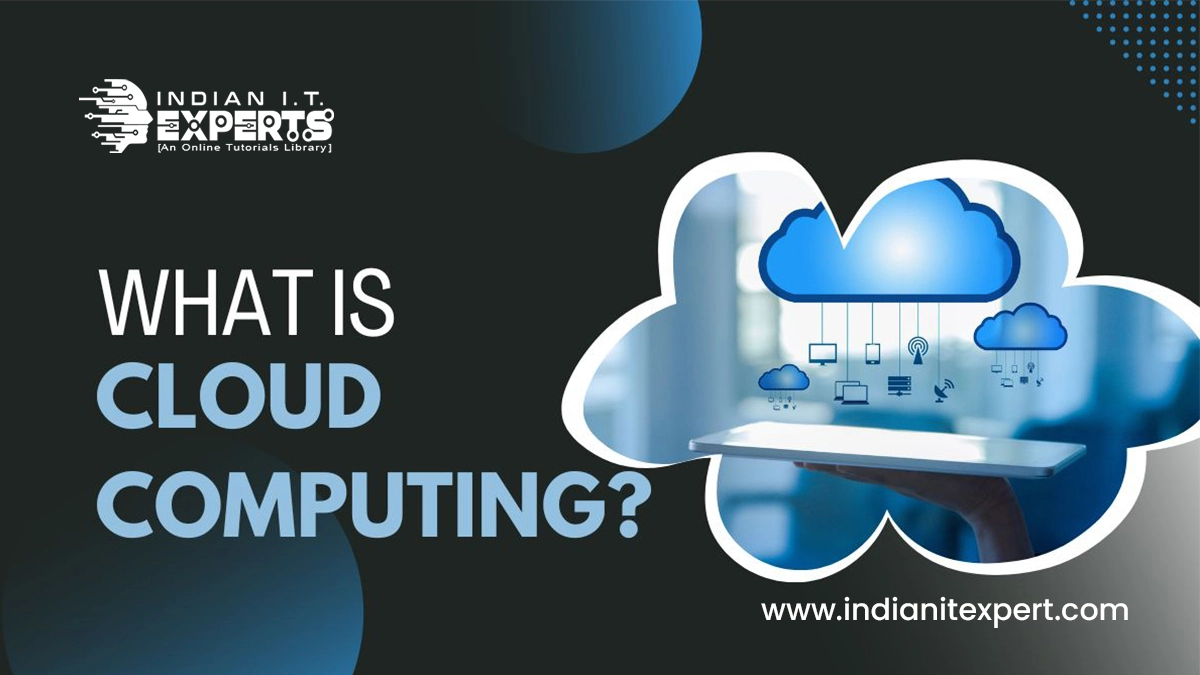
Definition
- Cloud computing refers to the delivery of computing services over the internet, allowing users to access and utilize shared resources and applications remotely.
How it work
- Cloud computing works by hosting data and applications on remote servers, which can be accessed over the internet.
- Users can store, manage, and process their data without the need for on-site infrastructure.
Key Characteristics of Cloud Computing:
- On-demand self-service: Users can provision resources and services as needed.
- Broad network access: Accessible from various devices via the internet.
- Resource pooling: Resources are shared among multiple users for efficiency.
- Rapid elasticity: As per Demand Resources can be scaled up or down.
- Pay-as-you-go pricing: What you consume you will pay only for that resources.
Types of Cloud Computing:
- Public cloud: Services are provided by third-party vendors accessible to the public.
- Private cloud: Infrastructure is dedicated to a single organization, providing more control and security.
- Hybrid cloud: Combination of public and private clouds, offering flexibility and scalability.
Benefits of Cloud Computing:
- Cost savings: Eliminates the need for upfront hardware and infrastructure investments.
- Scalability and flexibility: As per demand Resources can be easily scaled up or down.
- Increased collaboration: Enables real-time collaboration and file sharing among teams.
- Disaster recovery and data backup: Cloud providers ensure data redundancy and backup capabilities.
- Global accessibility: Users can access data and applications from anywhere with an internet connection.
Common Applications of Cloud Computing:
- Infrastructure as a Service (IaaS): Provides virtualized computing resources.
- Platform as a Service (PaaS): Offers a platform for developing and deploying applications.
- Software as a Service (SaaS): Delivers software applications over the internet.
Popular cloud computing providers
- Examples of popular cloud computing providers
- Amazon Web Services (AWS),
- Microsoft Azure,
- Google Cloud Platform (GCP), and
- IBM Cloud.
You are Using It in your Daily life but you don’t know
Read Below to know How!
Online Email Services
- Many people use cloud-based email services like Gmail, Yahoo Mail, or Outlook.com to send, receive, and store their emails.
- These services store emails, attachments, and contacts in the cloud, providing easy access and synchronization across devices.
Cloud Storage Services
- Popular cloud storage services like Google Drive, Dropbox, or OneDrive are commonly used by individuals to store and share files.
- These services store emails, attachments, and contacts in the cloud, providing easy access and synchronization across devices.
Streaming Music Services
- Platforms like Spotify, Apple Music, or Amazon Music use cloud computing to provide streaming music services to users
- These services store emails, attachments, and contacts in the cloud, providing easy access and synchronization across devices.
Online Photo Storage and Sharing
- Services like Google Photos, iCloud, or Flickr enable users to store their photos in the cloud, freeing up storage space on their devices.
- People can also easily share their photos with others through links or social media, showcasing their memories and experiences.
Online Backup Services
- Many individuals use cloud-based backup solutions such as Carbonite, Backblaze, or iCloud Backup to automatically back up their important data, including documents, photos, and settings.
- These services provide an additional layer of protection in case of device loss or data corruption.
Video Streaming Platforms
- Popular video streaming services like Netflix, Amazon Prime Video, or Disney+ utilize cloud computing to deliver high-quality video content to users.
- These services provide an additional layer of protection in case of device loss or data corruption.